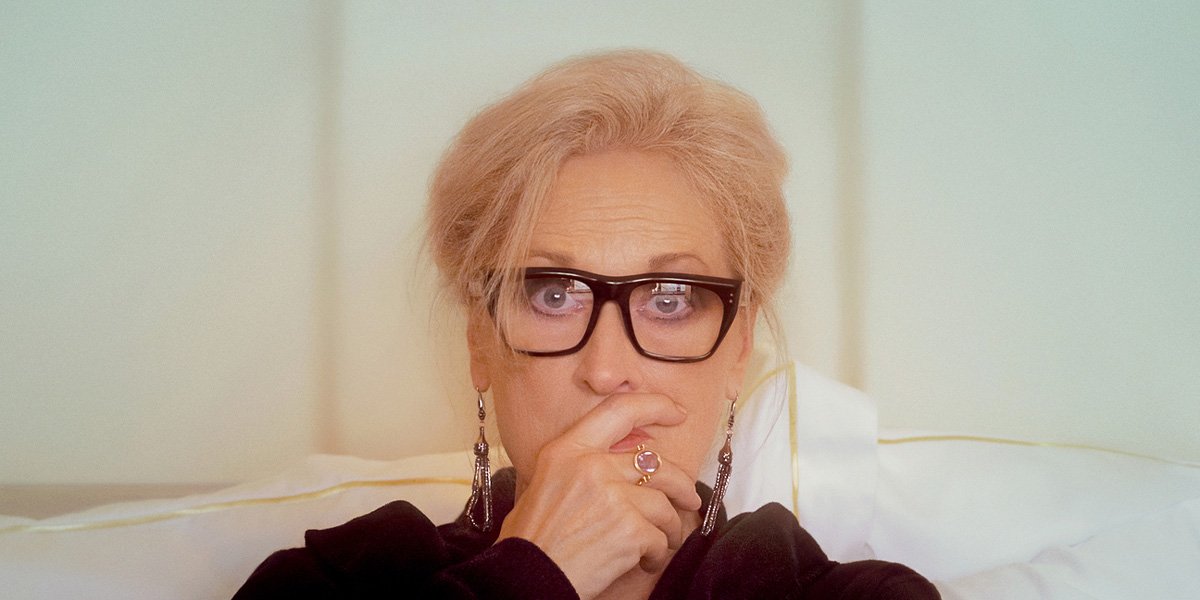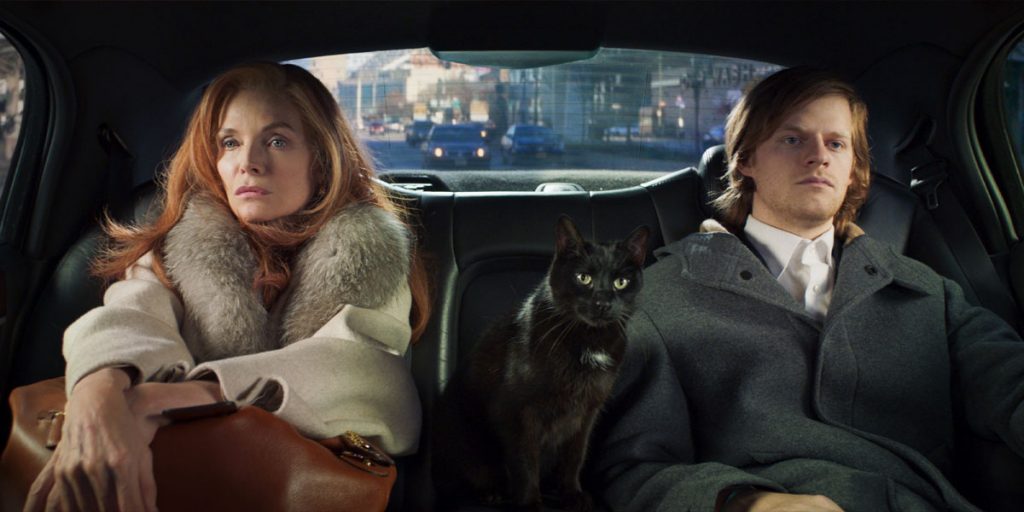French Exit may be excessively eccentric, but Michelle Pfeiffer’s powerhouse performance provides the film with a witty warmth.
Michelle Pfeiffer is a national treasure – let’s just get that out of the way. From her bombastic breakthrough role as Elvira Hancock in Brian De Palma’s Scarface to her instantly iconic interpretation of the conniving Catwoman in Tim Burton’s Batman Returns to her trio of Academy Award nominated performances in Dangerous Liaisons, The Fabulous Baker Boys, and Love Field, Pfeiffer has proven time and time again that she is more than capable of mastering any genre and that she is able to wholly immerse herself in every part she plays. Whether you love or hate the personalities she portrays in each individual film, one thing is always certain – you simply cannot take your eyes off the woman, no matter how hard you try. Her intoxicating and irresistible onscreen presence is simply too hard to pull away from, almost as if you’re under a spell throughout each and every one of her scenes.
In Azazel Jacobs’(The Lovers, Terri) French Exit, the same can most certainly be said. As the frosty and fantastical Frances Price, Pfeiffer is a deliriously delightful dynamo, delivering a terrifying and terrific tour de force performance that ranks among her most remarkable roles to date. Exit follows the prickly Price, a wealthy upper-class widow currently residing in New York who, upon discovering that her family’s fortune has run out, flees to France to a friend’s abandoned Parisian apartment with her soft-spoken but sensitive son Malcolm (Lucas Hedges, of Manchester by the Sea and Boy Erased) and her cherished cat, “Little Frank” – who also happens to be the reincarnation of her dead husband (Tracy Letts, of Lady Bird and Ford v. Ferrari). While interacting with a colorful and comical cast of supporting characters in this diminutive dwelling – including Valerie Mahaffey’s (Sully, Jungle 2 Jungle) Madame Reynard, a frenzied fan of Frances’, and Danielle Macdonald’s (Dumplin’, Bird Box) Madeleine, a moody medium – Frances struggles with her self-worth and additionally aims to cultivate a stronger connection with Malcolm, reckoning with their rocky past.
Although this absurdist adventure is aimless at times, the tale’s tone truly coalesces into coherence after its first act, when our dynamic duo step foot in France and the breezy but brilliantly biting story (based on the acclaimed novel by Patrick deWitt, with a script adapted by deWitt as well) is able to actually begin. There may not be much rhyme or reason to the eccentric events our protagonists encounter, but deWitt nonetheless keeps us engaged with the ever-increasing insanity thanks to the droves of delicious dialogue he’s written for these towering thespians to tear into.
Sometimes a scathing satire about the “woes of the wealthy,” sometimes simply a chaotic comedy of manners, French Exit rarely maintains a stable mood from scene-to-scene (or even from line-to-line), but, for the most part, deWitt is still able to counterbalance comedy with consequence, always keeping sight of the more serious and solemn subtext brewing just beneath the surface. By the time the film’s poignant payoff arrives, you’ll want to wonder just how deWitt was able to so skillfully and subtly plan for such pathos, but you’ll be too swept up in the sentiment to care.
As the formidable figure at the focus of this fiery film, Michelle Pfeiffer is utterly extraordinary in every sense of the word, enveloping Frances in an aura of privilege and pain simultaneously by slyly poking fun at her pretention and also continually honing in on her heavy heart as well. At the start of the film, Frances is droll and devil-tongued, and every line delivery from Pfeiffer is doubly scorching yet satisfying. It’s a hoot to hear her trenchant takedowns or watch as she luxuriantly lights a table in a restaurant on fire when her waiter takes too long to serve her and Malcolm, but the true beauty of Pfeiffer’s performance comes later on, as she prudently peels back the layers of this cantankerous character to discover her deepest despair.
Though Frances could’ve been no more than a crazed caricature, Pfeiffer conceives a credible core for this riotous role, eventually earning out empathy in spite of her initially pernicious persona. Through this effortful and emotional exploration, we learn how no amount of income can insulate one from the anguish that arises from depression and familial distress, and yet, as this is occurring, Pfeiffer still never sacrifices Frances’ sardonic shrewdness. It’s rare to see such a fully developed and fascinatingly multi-dimensional female lead of this age in any cinematic story, and it’s even rarer that the character is treated as carefully as Frances is here, but such is the magnificence of Michelle Pfeiffer.
Pfeiffer’s excellency is further emphasized through her caustic and captivating conversations with French Exit’s electrifyingly entertaining ensemble cast, all of whom absolutely align with deWitt’s absurdity and flesh out the film’s foolery. Mahaffey is perhaps the standout supporting player, always earnestly attempting to earn Frances’ affection and admiration and illustrating an impassioned innocence that is too outrageously amusing to overlook. Macdonald’s plain perspective of her psychic profession provides a comedic contrast to the film’s later supernatural sensibilities, and her gravity grounds these erratic excursions in reality.
Isaach De Bankolé (Black Panther, Casino Royale) is gifted with some side-splitting scenes as a deadpan detective hired to find “Little Frank” at one point, while Imogen Poots (The Art of Self-Defense, The Father) strongly supplements a third-act subplot as Malcolm’s forlorn former fiancée, who arrives to the Parisian apartment with her new broken-hearted beau in tow as she announces that she still might adore Malcolm. Hedges himself is the only occasional “weak link” in the line-up, at times successfully emulating a “sad boy” stoicism while other times coming across as cold. Regardless, he is able to ultimately uphold his end of the film’s dramatic denouement, effectively matching Pfeiffer’s engagement with the material.
Jacobs’ sensible and slick staging spotlights the story’s surrealism quite well, and he always knows how to best capture the characters’ cultured chats with his convincing and creative camerawork. Nick deWitt’s joyfully jazzy score complements Jacobs’ construction of this “classical comedy,” as it is both enormously enchanting and tremendously transporting, harkening back to the heyday of Hollywood when such screwy stories as these were the cream of the crop. Furthermore, though much activity in the film is confined to this single apartment, cinematographer Tobias Datum (Grandma, The Lovers) finds wonderful ways to stretch this space whilst additionally always properly lighting the luscious interiors as well.
There’s no doubt that French Exit will be an erratically eccentric experience for many – with some finding its oddities to be outrageously entertaining while others regard them as “off-putting” – but for those who don’t firmly take this peculiar plot at face value and instead allow themselves to be whisked away on this raucous ride, there is so much farcical fun to be had with Frances Price and her friends. Anchored by an astonishing Michelle Pfeiffer – in a part that stands as one of the best in her storied career – and strengthened by a stellar supporting cast and a sharp-witted screenplay, Azazel Jacobs’ French Exit is frivolous fun that masterfully mixes mirth with melancholy to engrossing effect.
French Exit closed at the 58th New York Film Festival on Saturday, October 10, 2020 and is now available to watch on digital and on demand. Read our review of the Lucas Hedges-starring Let Them All Talk.

 loudandclearreviews.com
loudandclearreviews.com
